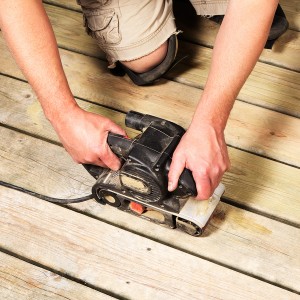
The sun is shining, and we’re finally seeing May flowers blooming. What better way to transition from spring to summer than by spending time outdoors? Those at your electric cooperative remind you electrical hazards are not only present indoors; they can also occur outside.
“It’s easy to forget the dangers we can face outdoors when we’ve spent the last six months predominantly inside,” said Tom VanParis, CEO of Indiana Electric Cooperatives. “Many outdoor activities can put us in harm’s way, and we want to ensure residents are thinking outside the home as well when it comes to electrical safety.”
When working outside, take a moment to look around you. Look up and down when you begin your next outdoor DIY project. When you look up, you may spy power lines close to the spot you’re working on. Always keep yourself and equipment at least 10 feet away; electricity can jump to nearby objects, like your ladder, shovel or hose. When looking down, you may not see anything, but there could be dangers lurking underground. That’s why it’s always important to call 8-1-1 before you dig. A trained professional will locate and mark underground facilities, helping you avoid any electrical dangers.
When starting a project that requires power tools, always ensure your outdoor outlets are up to standards. Make sure you have ground fault circuit interrupters (GFCIs) installed, which automatically cut power when a plugged item comes in contact with water. If you’re using an extension cord, do not use it unless it is labeled “for outdoor use.”
Operating power tools outdoors comes with a few guidelines that should be followed during and after use. These guidelines include:
- Inspect the tool before and after each use.
- Replace or repair worn or defective equipment immediately.
- Keep the tool and the area you’re working on clean to avoid fire hazards, and always store tools in a dry place.
- Never use electric tools or mowers in wet areas.
“We encourage those working outdoors to educate themselves on their tools and to be aware of their surroundings at all times,” VanParis said. “Looking up, down and around is a great habit to start when keeping up with yardwork this summer.”
Electricity is a powerful tool, but it can also be lethal. Share these tips with your friends and family, and remind them that electrical safety isn’t just inside the home but outside, too.
Sources: Electrical Safety Foundation International, FirstEnergy Corp
Outdoor electrical safety: Look up and down
Overhead power lines:
- When using a ladder and other long items, like pool cleaning tools, carry them horizontally whenever possible.
- Install your satellite dish as far away from electric lines as possible, preferably at the opposite end of the house.
- Keep equipment and people at least 10-15 feet from lines. Never trim trees near power lines. Don’t place a ladder where it could fall into a power line.
- Select and plant trees a safe distance from power lines — not only for safety, but for reliable electric service, too.
Underground power lines:
- Underground power lines require those green boxes called pad-mount transformers. Keep shrubs and structures at least 12 feet from the “door” of the box, and at least 3 feet from the sides in case your electric cooperative needs access to it.
- Do not plant near underground utility services. Tree roots can grow and interfere with underground pipes, cables and wires. Future repairs to these facilities also could damage the health and beauty of nearby plants and trees.
- At least a few days before planting, call 8-1-1, the underground utility locator service, to come out and mark the locations of underground utilities.
Power up safely with extension cords
- When outdoors, use only those extension cords rated for outdoor use. They are designed to resist outdoor wear and conditions.
- Check the power capacity of your cord to ensure it’s the same or greater than the item you’re planning to plug in. Don’t make do with a lower-capacity cord. For electric power tools, be sure to use a heavy-duty extension cord.
- Don’t string multiple extension cords together. Not only is it unsafe, but it will also reduce their power capacity and your electronic tools or gadgets won’t work properly.
- Plug your grounded outdoor extension cord into a ground fault circuit interrupter-protected (GFCI) electrical outlet to avoid shock or electrocution.
- Don’t use outdoor extension cords as long-term power sources. The longer they’re left out, the more risk there is of damage or wear.




